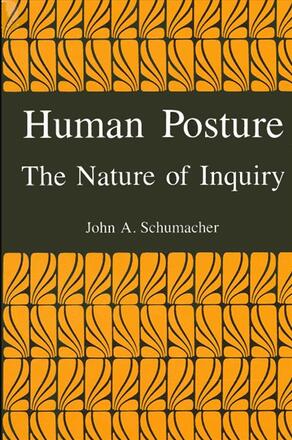
Human Posture
The Nature of Inquiry
Alternative formats available from:
Description
Schumacher has written a provocative work in the philosophy of science. In presenting posture as the most important aspect of life, Schumacher examines how the terms of posture encompass all the major disciplines and provide a means for resolving human dilemmas through a humanistically oriented philosophy of inquiry. He investigates a variety of important philosophical topics: abstract thought, perception, time, space, sexuality, education, and community. Insights into the origins and measures of space and time are especially valuable.
John A. Schumacher is an Associate Professor of Philosophy in the Science and Technology Studies Department at Rensselaer Polytechnic Institute.
Reviews
"I found it fascinating to read and it is quite beautifully written. But I must caution against taking its extreme originality lightly. " — Stephen David Ross, State University of New York at Binghamton
"I like the originality of the theme. One hears much today about semiotics and the structure of signs, about language, texts, theory, and narrative—but not of posture. Schumacher asserts that posture is the underlying condition for humans (like bees and other animals) having a world, for humans (unlike other animals) being free within it, for humans (like animals) communicating within a world and (unlike animals) inquiring about it. This is an engrossing work. It owes much to M. Merleau-Ponty. The work, however, is strikingly original in its analysis of posture; it is elegantly written and often eloquent; it is contemporary in its references and in the way it addresses the problematic of mind and brain, space and time; and it is a learned work which ranges over many disciplines in a fascinating way. It shows precise knowledge and keen appreciation of many branches of modern science—physics, psychology, linguistics, neurophysiology, and ecology, while at the same time it is deeply concerned with the way that science has alienated us from our bodies and senses by making us think of our bodies solely from the outside in. The sustained and insightful analyses of space and time are particularly rewarding. A great experience. " — Patrick Heelan, State University of New York at Stony Brook